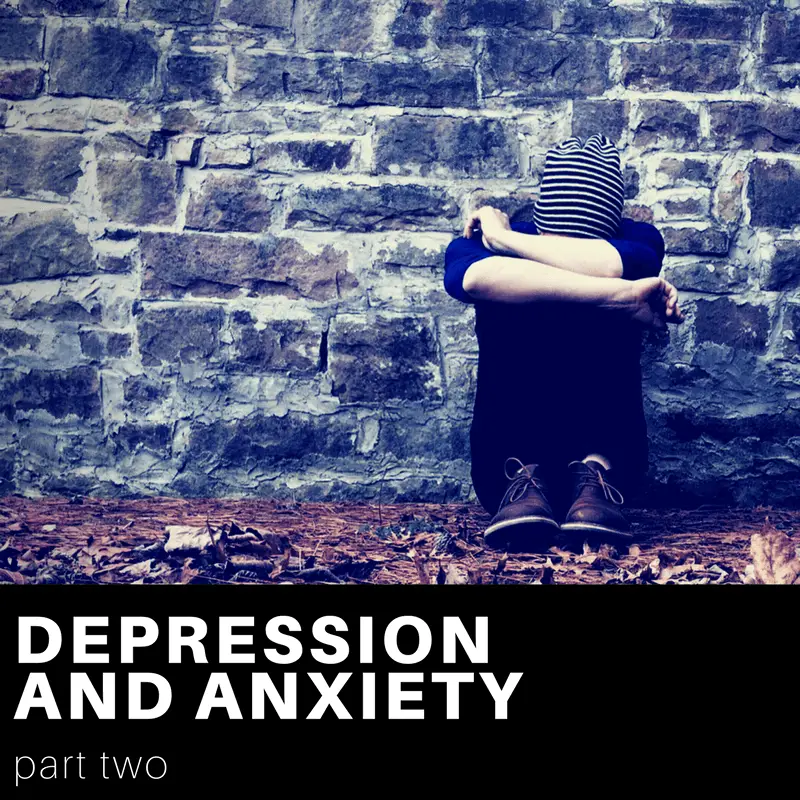The stats are in! There are a ton of college students struggling with various forms of mental illness. Approximately 25% of college students have been diagnosed or treated for a mental health condition in the past year. Among the top mental health concerns are depression and anxiety. In a study conducted with college counseling center directors it was found 41.6% of the students seeking services were diagnosed with
an anxiety disorder, followed by 36.4% diagnosed with depression. When working with college students ministers must be able to identify symptoms indicative of anxiety and depression and know how to help and when to refer.
Anxiety
Anxiety is a natural response to stress and college students are under tremendous stress. Most students can manage their anxiety through healthy coping skills such as talking with friends, exercising, etc. However, if a student in your ministry seems to have anxiety that is preventing them from accomplishing his or her goals it may be time to refer them to a counselor.
What to say
If a student is struggling with anxiety it is important to acknowledge their concerns. Encourage the student to talk about when the anxiety started and what makes it better or worse. Encourage the student to find people they feel safe around and to engage in serving others to avoid fixating on their own perceived deficiencies.
What not to say
Avoid minimizing the student’s discomfort with trite phrases such as “just push yourself” or “worrying is a sin, you have to trust God more.” While these phrases may be well intentioned they run the risk of alienating your student. Likewise, you don’t want to normalize to the point that the student becomes unable to grow. Avoid
trying to “rescue” the student from situations in which you think they may feel anxious. Instead, encourage your student to identify what they can do and when they need to pull back.
When to refer
If a student is unable to accomplish his or her goals or unable to engage in healthy relationships due to anxiety it is a good indication they need to be refereed for counseling. If a student is having panic attacks and are not in ongoing treatment they need to be referred.
Depression
Students experiencing depression can range from mild symptoms to devastating impairment and/or suicidal ideation. Many individuals will experience their first major episode of depression during the college years. Key symptoms to watch out for: disengagement from activities they previously were interested in, sleeping through
classes or important events, expressing overtly pessimistic or negative attitudes, become hostile toward others, acting apathetic. If a student is displaying these symptoms, particularly if these symptoms represent a shift from the normal demeanor of the student, it is important to talk to the student. Ask the student if he or
she notices a shift or change in their feelings/attitudes/behavior.
What to say
If a student appears to be struggling with depression they need to be consistently hearing a message of hope and encouragement. If they have sought help in the past, encourage them to continue taking prescribed medications and attending counseling sessions. Acknowledge their pain and frustration with the depression. Celebrate small victories with them.
What not to say
Avoid comparing your student’s experience with depression to your own or other people you may know. Each person experiences depression differently. While it may be helpful to share personal triumphs it can also cause a student to feel like they are failing if they do not recover in the same time frame other people have. Avoid
giving advice such as “try exercising three times a week” or “try reading your Bible every day for a month”. These are great things to do but if the student is unable to do them they may feel like they have let you down.
When to refer
In the U.S., suicide is the second leading cause of death amongst college-aged students. A major symptom of suicidality is hopelessness. If a student is saying things like “I just don’t see how things will ever get better” or “I am not sure what the point is,” you need to take it seriously and get the student help. Do not leave a student who is demonstrating suicidal thoughts alone, call for help and make sure the student is safe before you leave.
References:
• http://www.apa.org/monitor/2013/06/college-students.aspx
• Abramson, L., Alloy, L., Hogan, M., Whitehouse, W. Cornette, M., Sogoli, A., Chiara, A. (1998).
Suicidality and cognitive vulnerability to depression among college students: a prospective study. Journal of Adolescence, 21 (4), pp. 473-487.
• Joiner, T. and Rudd, M. D. (editors) (2002). Suicide Science: Expanding the Boundaries
• http://www.suicidology.org/resources/facts-statistics






